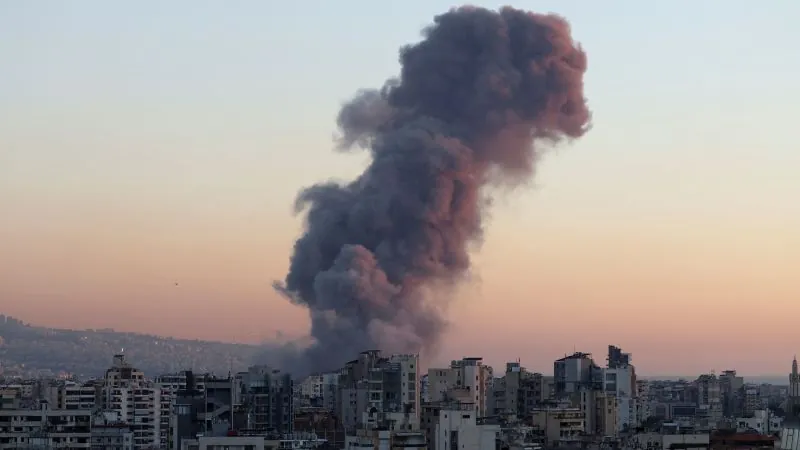
After Hassan Nasrallah’s Death: What Lies Ahead for Hezbollah and Israel?
2024-09-28
After Hassan Nasrallah’s Death: What Lies Ahead for Hezbollah and Israel?
In a dramatic turn of events, Hezbollah has confirmed the death of its leader, Hassan Nasrallah, following an Israeli airstrike. This pivotal moment prompts the question: what steps will the militant group take in response, and how will Israel’s actions shape the unfolding situation?
As Hezbollah's remaining commanders convene in the wake of this devastating loss, the next 72 hours will be critical. They must evaluate the strength and safety of their leadership structure, communicate amidst heightened risks, and gauge their capacity for retaliation. Particularly concerning is the extent of damage inflicted upon Hezbollah's arsenal due to a recent wave of Israeli airstrikes, raising doubts about their remaining military capabilities.
Reports suggest that Israel has effectively surveilled and pinpointed Hezbollah’s leadership and its munitions stockpiles, resulting in a deadly accuracy during their operations. Until now, Hezbollah has refrained from launching an extensive barrage of rockets against Israeli targets, which raises speculation regarding their current strategy. Should Hezbollah’s leadership decide on a military response to prove their strength and relevance, a failure to cause significant damage could further diminish their standing and embolden Israeli forces.
An additional layer of complexities lies within Iran's potential involvement. Historically, Iran has exhibited a significant tolerance for regional pressures and may adopt a longer-term strategy focused on its geopolitical ambitions. Recent developments hint at an increased pace in Iran’s uranium enrichment activities, raising alarms about the risk of a broader conflict that could destabilize the entire region and hinder non-proliferation efforts.
Importantly, Israel's forthcoming decisions will be pivotal. The country possesses a notable intelligence edge, military capacity, and a willingness to endure international backlash over civilian casualties to maintain operational momentum. However, this relentless strategy could risk transforming what should be a short-term tactical advantage into a longer-term detriment to Israeli prestige on the global stage.
Israeli Prime Minister Benjamin Netanyahu now faces a crucial dilemma. The events of the last two weeks may bolster his domestic image regarding security, but he must also consider the ramifications of pursuing an ongoing conflict lacking clear strategic objectives. As tensions rise in the Middle East, all eyes will be on Netanyahu to see whether he opts for a calculated military strategy or if he will recalibrate based on the regional and international responses to this unfolding crisis.
Stay tuned as this situation develops, for the implications could extend far beyond borders, affecting the geopolitical landscape in unprecedented ways.




 Brasil (PT)
Brasil (PT)
 Canada (EN)
Canada (EN)
 Chile (ES)
Chile (ES)
 España (ES)
España (ES)
 France (FR)
France (FR)
 Hong Kong (EN)
Hong Kong (EN)
 Italia (IT)
Italia (IT)
 日本 (JA)
日本 (JA)
 Magyarország (HU)
Magyarország (HU)
 Norge (NO)
Norge (NO)
 Polska (PL)
Polska (PL)
 Schweiz (DE)
Schweiz (DE)
 Singapore (EN)
Singapore (EN)
 Sverige (SV)
Sverige (SV)
 Suomi (FI)
Suomi (FI)
 Türkiye (TR)
Türkiye (TR)